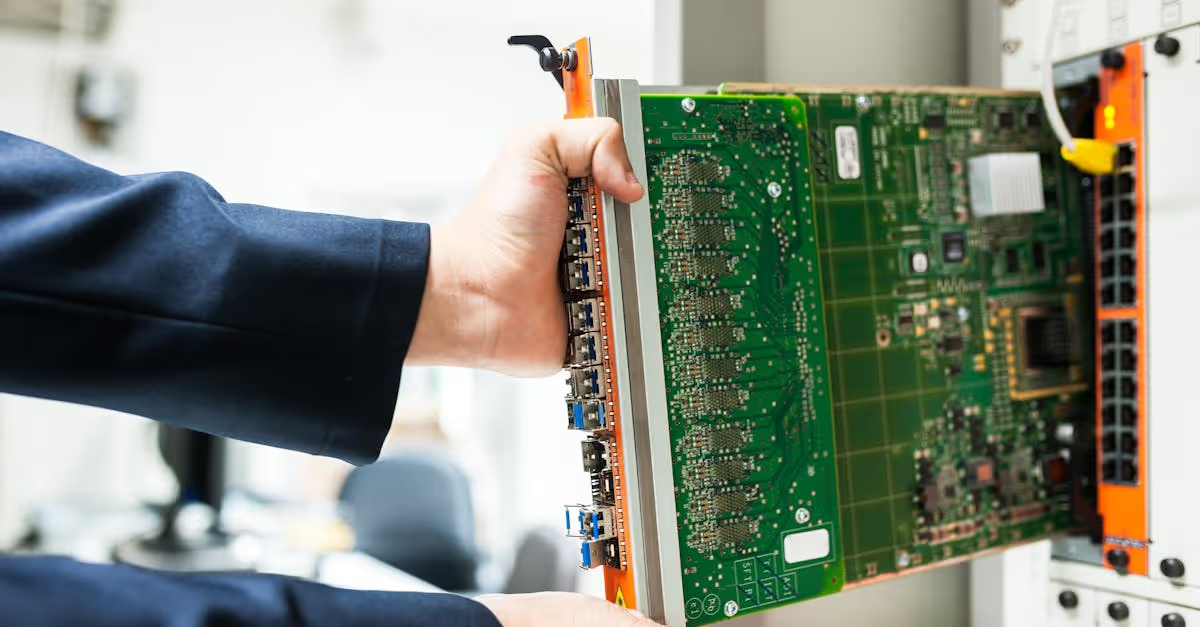Key Takeaways
- Importance of Pool Leak Detection: Up to 20% of a pool's water can be lost due to leaks, making regular detection crucial for maintaining pool integrity and financial investment.
- Variety of Detection Methods: Pool leak detection utilizes both traditional techniques—such as visual inspections and dye testing—and advanced technologies like acoustic leak detection and thermal imaging for precision.
- Benefits of Early Detection: Identifying leaks early prevents costly repairs and protects the longevity and value of the pool, while saving time and resources in repair processes.
- Professional Repair Processes: Repair methods range from simple sealant applications for minor leaks to more extensive solutions like repiping for significant damages, emphasizing the need for skilled technicians.
- Advanced Tools and Software: Utilizing field service management software optimizes scheduling and communication, ensuring efficient service delivery for leak detection and repairs.
- Engaging Homeowners: Mobile apps empower homeowners to report leaks promptly, fostering proactive maintenance and enhancing overall customer experience in pool care.
A pool isn’t just a luxury; it’s an investment that can significantly boost property value. Yet, did you know that up to 20% of a pool's water can be lost due to leaks? This staggering statistic highlights the importance of effective pool leak detection services.
We’re diving deep into the various methods used to identify and repair leaks in pools. From advanced technology to traditional techniques, understanding these processes can save us time and money while ensuring our pools remain in top shape. Join us as we explore how to keep our aquatic oasis leak-free and enjoyable all season long.
Overview of Pool Leak Detection
Pool leak detection serves as a vital service for maintaining pool integrity and longevity. At its core, this process identifies any leaks that may lead to significant water loss, which can impact both the environment and our finances. Detecting leaks early prevents costly repairs and preserves our pool's value and functionality.
Various methods exist for detecting leaks, and each has its benefits. Traditional techniques involve visual inspections where technicians check for cracks, loose tiles, or water around the pool area. More advanced options include electronic leak detection, using specialized equipment to pinpoint leaks accurately. Utilizing a combination of these methods can increase the likelihood of a successful leak discovery.
Infrared cameras, for example, reveal temperature differences that might indicate a leak and help us visualize issues otherwise hidden from sight. Similarly, acoustic listening devices help detect the sound of water escaping from pipes or pool structures. These technologies provide effective solutions, combining efficiency with precise detection capabilities.
After identification, the repair process involves various actions depending on the severity and location of the leak. Minor cracks may require simple sealants, while significant issues may necessitate more extensive work, like repiping or structural repairs. Hiring professionals who specialize in these repairs guarantees adherence to necessary safety measures and ensures repairs are completed with quality and precision.
We utilize field service management software to streamline our operations, from scheduling technicians to tracking the entire service process. This software allows us to optimize technician routes, manage appointments more effectively, and engage customers throughout the repair process. Automated field service solutions facilitate communication between our team and clients, making it easier to address concerns and keep customers informed.
Engaging homeowners is key in this process. With mobile apps designed for service requests, customers can instantly report leaks and arrange for service. These tools foster community engagement and enhance the customer experience, ensuring we're all on the same page. The service business customer portal might allow you to track your service history, access maintenance tips, and understand pool care better.
Leak detection isn't just about fixing a problem; it’s about maintaining a space that brings joy and relaxation. When was the last time your pool brought a smile to your face? With proactive leak detection approaches, we embrace pool ownership and mitigate issues before they escalate. After all, nobody wants the surprise of waking up to an empty pool—unless we’re into extreme diving practices!
Pool leak detection and repair processes, fueled by modern tools and community resources, create an efficient way to protect our investments. Pool leaks may pose challenges, but with advanced techniques and dedicated professionals, we can preserve our favorite oasis and keep the good times rolling.
Methods of Pool Leak Detection
Detecting pool leaks involves a blend of traditional observations and modern techniques. Awareness of these methods fosters proactive maintenance, keeping our pools in top condition.
Visual Inspection Techniques
Visual inspections serve as the first line of defense against leaks. We look for obvious signs like water pooling around the pool area, cracked tiles, or sudden chemical imbalances. Inspecting the pool liner plays a crucial role, especially if we have vinyl liners. Signs of tears or separations near skimmers, returns, or steps indicate potential leaks.
We also check for sinkholes, where the substrate may have eroded. It's amazing how critters can unintentionally alter our pool landscape. Any claw marks or damages near the pool's edge might signal that an animal has ventured too close.
Using Pressure Testing
Pressure testing stands as a reliable method for identifying leaks within a pool's plumbing system. We connect the entire plumbing into a single line for a thorough assessment. This method helps us determine if there are hidden leaks by monitoring any pressure drops.
With pressure testing, any abnormalities or drops in pressure suggest potential leaks that require attention. Technicians can then pinpoint where the plumbing isn't holding up. This targeted approach makes repairs more efficient, ultimately saving us time and resources.
Employing Dye Testing
Dye testing adds another layer to our leak detection efforts. We introduce a dye into the pool water at suspected leak sites. If the dye moves towards a specific area, it clearly indicates a leak. This simple yet effective method allows us to visualize where the water is escaping.
It's a straightforward process that can lead to quick identification of leaks. Plus, it minimizes unnecessary digging or intrusive repairs. It’s like finding the source of that annoying sound in the attic, but with less mystery!
With these methods, we’ve got a toolkit for detecting and addressing leaks promptly, protecting our valuable investment and keeping our pool experience enjoyable.
Advanced Leak Detection Technologies
Advanced leak detection technologies play a vital role in maintaining healthy swimming pools. By employing the right techniques, we can identify leaks early and prevent costly repairs.
Acoustic Leak Detection
Acoustic leak detection uses sound waves to pinpoint leaks in pool plumbing. Our experienced technicians place microphones in strategic locations. They listen for the distinct sound of escaping water, which can indicate a leak’s source. This method proves effective for underground pipes and hidden locations. Accuracy is key, and with specialized tools, we locate the leak without unnecessary digging. By utilizing this technique, we maintain our pools and safeguard our investments.
Thermal Imaging
Thermal imaging employs infrared cameras to visualize temperature differences in pool structures. When there's a leak, water temperature changes, allowing us to identify problem areas quickly. This method is non-invasive and highly efficient. Our technicians scan the pool area, detecting leaks behind walls, under decks, or in crevices. This technology enhances our ability to find issues before they escalate. It’s like having X-ray vision for pools!
By integrating these advanced technologies, we improve our leak detection services. Our goal is timely detection and repair, helping homeowners enjoy their pools worry-free. Through these methods, we protect our communities and foster a culture of proactive maintenance. As technology advances, we embrace innovative solutions for better pool care.
Repair Processes for Pool Leaks
Repairing pool leaks involves various methods tailored to the leak's severity. We focus on common techniques and know when to call in the experts.
Common Repair Techniques
We usually begin with minor repairs that might just need simple sealants. In cases of small leaks, these remedies can be quite effective. For more significant issues, we tackle cracked tiles or damaged liners with patch kits, often applying epoxy or vinyl patches.
We also handle plumbing leaks which require pressure testing first. Pressure tests help locate hidden leaks in pipes. If we confirm a leak, options include repairs or full replacement of plumbing sections.
Using tools like technician scheduling systems streamlines this process. For instance, with field service management software, we can schedule repairs and track inventory efficiently. This not only improves our workflow but also enhances customer satisfaction by ensuring timely and transparent service. Saving time during repairs means less disruption for everyone involved.
When to Seek Professional Help
We know some leaks are a bit more than DIY fixes. If the damage appears extensive, or if you're unsure about the problem, reaching out to professionals makes sense. Experts bring specialized equipment and training that can save time and resolve issues effectively.
Signs that it’s time to call in the pros include significant water loss over a short period or frequent pool maintenance issues. Additionally, complicated plumbing systems might need advanced detection methods, like thermal imaging or acoustic technology.
Using a mobile field service app allows homeowners to connect directly with repair technicians, accelerating the service request process. Noticing a leak and knowing when to act makes all the difference. By embracing professional help, we protect our pools and keep them a source of enjoyment for our families.
Conclusion
By prioritizing pool leak detection services we’re taking essential steps to protect our investment and enhance our enjoyment of our pools. Utilizing a mix of traditional and advanced methods ensures we identify leaks quickly and accurately.
Timely repairs not only save us money but also extend the life of our pools. With the integration of technology and efficient communication through mobile apps we can stay ahead of potential issues.
Let’s embrace proactive maintenance to create a safe and enjoyable swimming environment for ourselves and our families.
Frequently Asked Questions
What are the main benefits of pool leak detection services?
Pool leak detection services help maintain the integrity and longevity of your pool. They prevent costly repairs by identifying leaks early, protecting your investment, and ensuring your pool remains a valuable asset to your property.
How much water can a pool lose due to leaks?
A pool can lose up to 20% of its water because of leaks. This significant loss highlights the importance of regular leak detection to maintain water levels and avoid unnecessary expenses.
What are some common methods for detecting pool leaks?
Common methods for detecting pool leaks include visual inspections for obvious signs, pressure testing to identify plumbing issues, and dye testing to pinpoint leak locations effectively.
When should I consider professional help for pool leaks?
You should seek professional help if you notice extensive damage, like cracked tiles, major plumbing issues, or if repairs are beyond your expertise. Professionals can accurately diagnose and fix complex leaks.
Can advanced technologies improve leak detection?
Yes, advanced technologies like acoustic leak detection and thermal imaging enhance leak detection accuracy by using sound waves and infrared cameras. These methods allow technicians to locate leaks efficiently without invasive procedures.
How can I efficiently communicate with leak detection services?
Using mobile field service apps allows homeowners to request services quickly and efficiently. These apps enhance communication and ensure timely responses to leak issues, improving overall customer experience.
What types of repairs are possible for pool leaks?
Repairs for pool leaks vary based on severity. Minor leaks can be fixed with simple sealants, while major issues may require patch kits or plumbing repairs. Knowing when to engage professionals is crucial for effective solutions.






